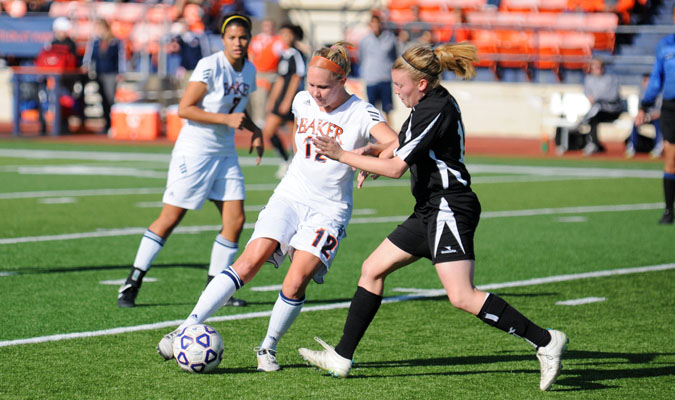
From a very early age, Associate Professor of Music Robin Liston was captivated by music.
“I always loved singing,” she said. “I was in a church choir as a young child, and I was always looking for opportunities to sing in school.”
Starting in sixth grade, Liston played the French horn in band and sang in the school choir of her hometown of Cuyahoga Falls, Ohio. Teaching came just as naturally as music.
The oldest of five children, Liston was the authoritarian, babysitting often as a high school student, as well as coaching soccer and working with children over the summer for the town’s parks and recreation program. With all of this responsibility, she was used to “herding children around,” which led her to a teaching career.
However, she wasn’t sure she would pursue music in college. When she visited a hospital as part of a career exploration program, she became fascinated with medical technology.
“I just loved the labs” she recalled. “I thought the labs were the coolest places, so there was a part of me that wanted to head into a medical laboratory-type field.”
After some deliberation, she ended up choosing to study music at the Ohio State University, where she found the source of her appreciation for classical music.
“I took ballet lessons all throughout elementary school, but it wasn’t until I was an undergraduate studying music history when I went, ‘Wait a minute. Why do I love this?’ and I didn’t realize it then because I was there for the movement, but I realized how important the musical listening experience was,” Liston said.
Emphasizing the importance of music in education, she referenced the saying, “music demands excellence.”
“If you get an 85 percent on a math test… that’s pretty good” she said. “Well, if you only played 85 percent of the notes right in a concert? That would be terrible. We don’t even want to hear one mistake and that’s an important quality for us as humans … to be really good at something and keep getting better at it.”
Enjoying the emotional and spiritual release achieved through music is something she feels is critical to express to her students.
“Just like a great book, it allows us to use our imaginations to live all sorts of lives and be all sorts of people,” she said.
She found that not only does music deliver emotional response, it also delivers cognitive response, citing a “functioning MRI” study which showed that music can trigger many areas of the brain.
“I think the catchphrase is ‘music will make you smarter,’ and I think that is too dangerous to say, but I do believe that music does something special to the brain that other activities don’t,” she said. “When you apply something you learn in music outside of class, it opens a whole new door.”
Her lessons don’t come without entertainment. Every semester, she will choose one day to demonstrate her previous dancing experience by doing a cartwheel in class. This is just one example of the many ways she demonstrates her enthusiasm and joy from working with music.
“I just feel really lucky to be able to engage with something that I love every day at work,” she said.
During senior Will Schowalter’s freshman year, he was first chair trumpet in a brass quintet. This quintet, however, was missing a French horn. Liston, now with decades of experience with the instrument, volunteered to play.
“She was very helpful,” Schowalter said. “She was not only a great French horn player, but she also helped me with my musical style.”
The ultimate message she would like to give to her students?
“Keep learning, keep an open mind, and keep music in your heart,” Liston said. “Even if you’re not a performer, I want to help students continue to believe in their ability to learn.”
